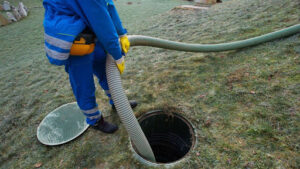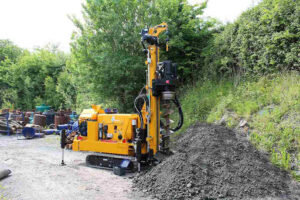
Alevemente
Alevemente has become a buzzword lately, but what exactly is it? This ancient practice, rooted in mindfulness and holistic wellness, offers a comprehensive approach to achieving physical, mental, and emotional well-being. Amidst the chaos of modern life, many are turning to Alevemente to find balance and inner peace.
At its core, Alevemente provides a structured method for incorporating mindfulness into everyday routines. Through techniques such as meditation, breathing exercises, and mindful movements, practitioners can experience profound benefits. These practices enhance mental clarity and promote overall health and emotional stability.
Curious about how Alevemente can transform your life? Read on to discover the science behind this powerful practice, learn different techniques, and how to seamlessly integrate Alevemente into your daily routine.
What is Alevemente?
Alevemente is a holistic practice focused on achieving a state of mindfulness and well-being. Originating from ancient traditions, it combines meditation, breath control, and physical postures to create a balanced approach to health. The word “Alevemente” derives from ancient languages, symbolizing the elevation of the mind and spirit.
This practice emphasizes the connection between mind, body, and spirit. It encourages individuals to be present in the moment, fostering awareness and acceptance. Clemente is not just a physical exercise but a mental discipline that promotes a sense of inner peace and clarity.
The principles of Alevemente are rooted in various cultural traditions, making it a rich and diverse practice. It incorporates yoga, Tai Chi, and meditation elements, creating a unique blend that caters to modern-day needs. By practicing Alevemente, individuals can experience enhanced mental clarity, emotional stability, and overall wellness.
The Science Behind Alevemente
Scientific studies have shown that practices like Alevemente can significantly impact mental and physical health. Research indicates mindfulness-based practices can reduce stress, lower blood pressure, and improve overall cognitive function. Alevemente’s techniques, such as deep breathing and meditation, are particularly effective in activating the parasympathetic nervous system, which promotes relaxation and reduces stress.
Neurological studies have revealed that regular meditation and mindfulness practices can lead to changes in brain structure. These changes include increased gray matter density in learning, memory, and emotional regulation areas. This means that Alevemente can enhance cognitive abilities and emotional resilience.
Additionally, Alevemente has been found to boost the immune system, improve sleep quality, and reduce symptoms of anxiety and depression. Integrating physical movements with mindfulness techniques promotes better physical health and mental well-being. As more research emerges, the scientific community continues to support the efficacy of practices like Alevemente in promoting overall health.
Benefits of Practicing Alevemente
The benefits of practicing Alevemente are vast and multifaceted. Physically, it helps in improving flexibility, strength, and balance. The mindful movements and postures used in Alevemente promote better alignment and coordination, reducing the risk of injuries and chronic pain.
Mentally, Alevemente is known to enhance concentration, memory, and overall cognitive function. The practice encourages mindfulness, which can help reduce stress and anxiety levels. By focusing on the present moment, individuals can cultivate a sense of calm and clarity, essential for mental well-being.
Emotionally, Alevemente fosters a greater sense of self-awareness and emotional regulation. Practitioners often report feeling more balanced and in tune with their emotions. This emotional stability can lead to improved relationships and a more positive outlook on life. Alevemente offers a holistic approach to health, addressing well-being’s physical, mental, and emotional aspects.
Different Techniques of Alevemente
Alevemente encompasses a variety of techniques that cater to different aspects of well-being. Meditation is a core component, helping practitioners develop focus and mindfulness. Different meditation styles, such as guided, mantra, and mindfulness meditation, can be incorporated into an Alevemente practice.
Breathing exercises, known as pranayama, are another essential technique. These exercises involve controlling the breath to enhance relaxation and concentration. Techniques like diaphragmatic breathing, alternate nostril, and box breathing are commonly used in Alevemente.
Physical movements and postures are also integral to Alevemente. These movements are designed to improve flexibility, strength, and balance. Unlike traditional exercise routines, the movements in Alevemente are performed mindfully, focusing on alignment and breath. This mindful approach ensures that the practice benefits both the body and mind.
How to Start Practicing Alevemente
Starting Alevemente is simple and accessible to everyone. Begin by setting aside a specific time each day for practice. Consistency is key to experiencing the benefits of Alevemente. Create a quiet and comfortable space where you can practice without distractions.
Begin with basic meditation and breathing exercises. Start with short sessions, gradually increasing the duration as you become more comfortable. Focus on your breath and try to stay present in the moment. There are numerous online resources, including guided meditation apps and videos, to help beginners.
Incorporate simple physical movements and postures into your practice. These can be as simple as stretching exercises or more structured sequences like those found in yoga. Remember to move mindfully, paying attention to your breath and body alignment. As you progress, you can explore more advanced techniques and integrate them into your daily routine.
Alevemente in Daily Life
Integrating Alevemente into your daily life can be seamless and rewarding. Start by incorporating small mindfulness practices throughout your day. Simple acts like mindful breathing, walking, or eating can make a significant difference. Take a few moments each day to pause and focus on your breath.
Set aside time for a more structured Alevemente practice. Consistency is crucial, whether in morning meditation or an evening relaxation routine. Use reminders or schedule your practice time to build a habit. Over time, these practices will become a natural part of your daily routine.
Share your Alevemente journey with others. Practicing with friends or joining a community group can enhance your experience. Discussing your progress and challenges with others can provide motivation and support. The communal aspect of Alevemente fosters a sense of belonging and shared growth.
Common Misconceptions About Alevemente
Several misconceptions about Alevemente need to be addressed. One common myth is that it is only for people who are already flexible or fit. In reality, Alevemente is accessible to individuals of all fitness levels. The practice can be modified to suit different abilities and needs.
Another misconception is that Alevemente requires a lot of time. While a longer practice can be beneficial, even short sessions can provide significant benefits. The key is consistency and integrating mindfulness into everyday activities.
Some people believe that Alevemente is a religious practice. While it has roots in various spiritual traditions, Alevemente is a secular practice focused on mindfulness and well-being. Individuals of any or no religious background can practice it.
Alevemente vs. Other Mindfulness Practices
Alevemente is often compared to other mindfulness practices like yoga and Tai Chi. While there are similarities, Alevemente has unique aspects that set it apart. Unlike traditional yoga, Alevemente places a greater emphasis on the integration of breath control and meditation.
Tai Chi focuses more on physical movements and martial arts applications, whereas Alevemente combines these with deep mindfulness practices. Alevemente’s holistic approach addresses the physical body, mind, and spirit.
Each practice has benefits, and the choice depends on individual preferences and goals. Some may prefer the dynamic movements of Tai Chi, while others might find the meditative aspects of Alevemente more appealing. Exploring different practices and finding what resonates best with you is essential.
The Role of Community in Alevemente
Community plays a vital role in the practice of Alevemente. Practicing with others can enhance motivation and provide support. Community groups or classes offer a space for shared learning and growth. Engaging with others with similar interests can create a sense of belonging and accountability.
Online communities and forums can also be valuable resources. They provide a platform to share experiences, ask questions, and receive guidance. Joining an online community can connect you with practitioners worldwide, expanding your network and knowledge.
Participating in workshops or retreats can deepen your practice. These events offer intensive learning experiences and the opportunity to connect with experienced practitioners and teachers. The sense of community and shared commitment can significantly enhance your Alevemente journey.
Alevemente Resources and Further Reading
There are numerous resources available for those interested in learning more about Alevemente. Books, websites, and online courses offer valuable information and guidance. Some recommended books include “The Art of Mindful Living” by Thich Nhat Hanh and “The Miracle of Mindfulness” by the same author.
Websites like Mindful.org and Headspace provide articles, guided meditations, and courses on mindfulness practices. Online platforms like YouTube offer a variety of videos on Alevemente techniques and practices. These resources can provide valuable insights and help you deepen your practice.
Joining online forums and communities can also be beneficial. Platforms like Reddit and Facebook have groups dedicated to mindfulness and Alevemente. Engaging with these communities can provide support, inspiration, and practical advice.
Expert Opinions on Alevemente
Experts in mindfulness and holistic wellness widely recognize the benefits of Alevemente. Dr. Jon Kabat-Zinn, a pioneer in mindfulness-based stress reduction, emphasizes the importance of integrating mindfulness into daily life. He advocates for practices like Alevemente to enhance mental and physical well-being.
Dr. Sara Lazar, a neuroscientist at Harvard Medical School, has researched the effects of mindfulness practices on the brain. Her studies indicate that regular meditation can lead to structural changes in the brain, improving areas related to learning, memory, and emotional regulation.
Practitioners and teachers of Alevemente also highlight its transformative potential. They emphasize that consistency and commitment are key to experiencing the full benefits. By integrating Alevemente into daily routines, individuals can achieve greater balance, clarity, and overall well-being.
Conclusion
Alevemente offers a holistic approach to achieving balance and well-being in today’s hectic world. Incorporating mindfulness, meditation, and physical movements provides numerous physical, mental, and emotional benefits. Whether you are a beginner or an experienced practitioner, Alevemente can be adapted to fit your lifestyle and needs. Embrace Alevemente and discover the transformative power of mindfulness in your daily life. Start your journey today and experience the profound impact it can have on your overall health and happiness.
FAQs:
What is Alevemente?
Alevemente is a holistic mindfulness practice that combines meditation, breath control, and physical movements to promote overall well-being.
Can anyone practice Alevemente?
Yes, Alevemente is accessible to individuals of all fitness levels and backgrounds. The practice can be modified to suit different needs and abilities.
How often should I practice Alevemente?
Consistency is key. Practicing Alevemente daily, even for a short duration, is recommended. Integrating mindfulness into everyday activities can also be beneficial.
Do I need special equipment for Alevemente?
No special equipment is required. Comfortable clothing and a quiet space are sufficient. Some may prefer using a yoga mat or cushions for comfort.
Can Alevemente help with stress and anxiety?
Studies have shown that mindfulness practices like Alevemente can significantly reduce stress and anxiety levels by promoting relaxation and mental clarity.
Is Alevemente a religious practice?
While Alevemente has roots in various spiritual traditions, it is a secular practice focused on mindfulness and well-being. Individuals of any or no religious background can practice it.
How do I start practicing Alevemente?
Begin with simple meditation and breathing exercises. Set aside a specific time each day and create a quiet, comfortable space for practice. Gradually incorporate more techniques as you progress.
For More Blogs Visit: Findbestbizz





